Escaping Through Filmmaking - Making It: Women in Film
Talking about growing up with films, deciding to get into the industry, our experience and opinions of diverse representation, Netflix's Disclosure, and women who inspire us in all aspects of life.

This is the transcript of the first episode of Making It: Women in Film - “Escaping Through Filmmaking”. Hosted by Shania Bethune and Malin Evita.
Listen to it now, on Spotify or wherever you get your podcasts.
*This transcript has been mildly edited for conciseness and context.
Shania: For this first episode we wanted to get a bit personal and talk about our own relationship with movies and our own journey into filmmaking as a career choice.
Evita: So, let’s just start at the beginning. What’s your beginning?
Shania: My beginning, let me think… I remember being really, really young and only being creative. It’s the only thing I’ve really been good at. So, I did art at primary school and academy, and that’s the only thing I got A’s in. Even though my art teachers hated me and tried to kick me out of the class! But I refused and stayed until 6th year.
I was always obsessed with films. I lived in the middle of nowhere and never left the house, so all I really had was films. And I wanted to be an actress for so long and played the lead in the play every single year in primary school.
Then I remember when I was about twelve, my brother started saying that he wanted to be a film director and I was like “what’s that?” - so I did my research and found out that [being a] film director was basically like being in control of the film; you are in control of the creative process. And when I learned that I was like “that’s me! I want to be in control, I want to be a leader,” since I realised that, I’ve wanted to work in film and I’ve just been working my way through to that goal! We are not there quite yet, but we are definitely going to get there! What about you?
Evita: Well, it’s quite different for me. I grew up in a very traditional Christian community - very strict. I wasn’t allowed to watch anything that had any sort of boyfriend or girlfriend in it. No kissing - if there was kissing on the screen… I couldn’t watch Hannah Montana when I was a kid! ‘Cause that wasn’t very Jesus-like and would inspire sin. So there was a lot I wasn’t allowed to watch, it was very restrictive.
So for me, in the beginning, it was very much just books. I loved reading, I loved Harry Potter - I’ve read the series too many times! For me, it was just escaping into a different world. I remember, when eventually we were able to leave that community, it was kind of through movies that I found I was introduced to the world. Because for a long time, my world had not really been aligned with the outside. It was kind of a Truman Show.
I just remember becoming closer with film and realising like “wow, this is a way to tell stories”. And I had always loved writing, so for me, it was just telling stories that way.
Shania: Interesting that you said that it was like a form of escapism - in the academy I had a really tough time; I was so anti-social, I couldn’t speak to anyone and I would shake if anyone spoke to me. And I was having a lot of problems at home, and I remember every single weekend L.J. - my sister - would take me to the cinema, and I would escape through films. I hated my life when I was younger. I was very … I was quite depressed, I would say, and films were like the only escape I had from that. So, I definitely agree with you on that bit. Films were so important in my childhood - I both grew up with them and escaped through them.
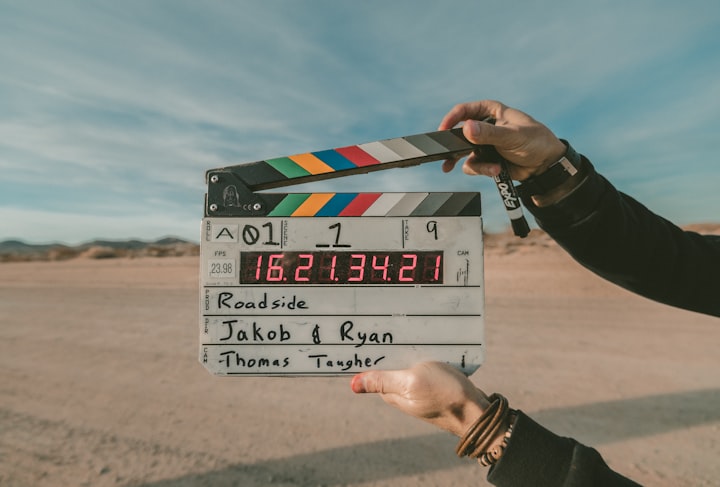
Evita: Yeah, and one thing is escaping into someone else’s creation, but when you start making your own films or writing or whatever it is - thinking about a story… I don’t know, it’s cringy, but making your own story that way and being able to escape - not escape, but being able to explore something that you don’t have in real life.
Shania: I also grew up with no diversity whatsoever, and as you said, films were my first insight into different people with different backgrounds. So I thin films are so important for representation.
Evita: Mhm, again [where I grew up] it was very restrictive - and I knew that, so sometimes I would sneak in on the tablet and I remember that I started watching Pretty Little Liars. I think I was either 11 or 12 [years old] - quite young, but I watched it. I don’t know if it was in the second episode, but Emily [one of the main characters] kisses this girl. And that was the first time that I had ever seen a girl kissing another girl! I didn’t even know that that existed! But I remember that something in me felt that, and resonated with it, and I was so afraid.
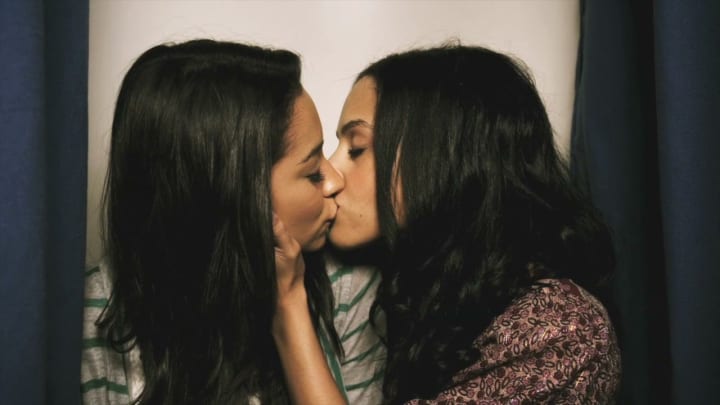
In the community, the church, I grew up in it was very much like if you are not told about something, it is because it shouldn’t exist, it’s sinful. You know what you [shoul] know, and that’s it. So I shut off the tablet and threw it to the side, made my prayers. And then I just kind of forgot it; buried it away.
But then I remember that as I got out of that community and entered the real world, I realised that I was bi and I don’t know if I would have realised that as soon as I did had I not seen that on the screen [that time]. It is incredibly important and did just have such a massive impact on my life.
Shania: I think we grew up very differently; my parents were so openminded and didn’t care what I did, as long as I was doing something! You know, I was allowed to watch everything and didn’t have any restrictions in regards to that stuff so we definitely grew up very differently. Almost like you were told what to say and believe, and I was like ‘say and believe what you want’ kind of thing.
Evita: Yeah, and again I think it’s that way where movies, TV-series, any sort of media - it allows for inspiration, it allows for different perspectives. When I think about what I have been introduced to and what I have learned throughout my life, so much of it has been from movies; experiences and ideas on many subjects. And there is both good and bad versions of that, of course, where sometimes if it isn’t done by a person who really knows what they are talking about it could be misrepresented. If you for the first time hear about a person or a group and [they] are being really misrepresented, then obviously that is damaging.
Which again is why we are here: we want to promote diverse voices, women, and all kinds of different women.
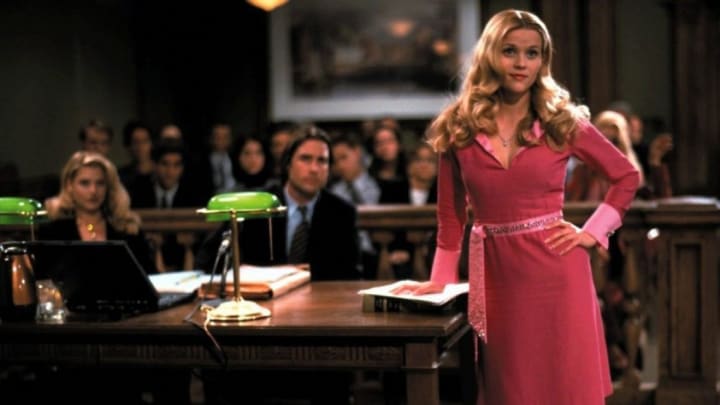
Shania: I remember being small and watching all these movies and I thought that the industry was diverse. In all my favourite films, females were in them, like Legally Blonde - I was obsessed with it. Whatever anyone says, she is a strong -
Evita: Oh, yes! She’s amazing. What’s her name again?
Shania: Elle Woods!
Evita: Elle Woods! Sorry, sorry! My apologies!
Shania: Me and my sister are getting matching pink tattoos that’ll say Elle Woods when Legally Blonde 3 comes out. I’m not sure if that movie is going to be good, but we’ll get that tattoo anyway.
She was my favourite character when I was younger, or like Julia Roberts’ character [in Pretty Woman]. So I thought that the film industry was diverse and that women were well represented. But when I grew up a bit and did my research… I was completely wrong, I was so wrong.
Evita: Only recently I started becoming aware of how many times a woman speaks in a film. And sometimes I’ll watch movies and I’m like ‘I can count on one hand how many women said anything in that entire two-hour movie,’. And it is interesting because it’s not something I used to be aware of at all!
Shania: Mhm, but I also think that when I learned about the misrepresentation in film and how it wasn’t diverse, it also didn’t turn me away from the industry. Like I wanted to be in it even more! That’s one of the main reasons that I want to be part of it; I want to be a part of the change.
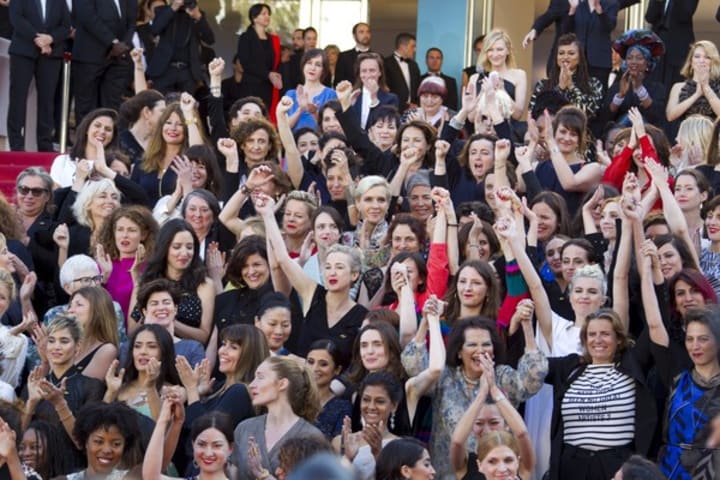
Evita: Yes, absolutely. And you know, we are both aspiring - amateurs, one could say - and we’ve been at some events… Again it is becoming more frequent to see women in film; women directors, women cinematographers, writers, et cetera. And not just white women either, not just white straight cis-women - but all kinds of women. It’s really opening up and I think it’s also because of the internet where anyone can really do anything - YouTube, et cetera - where you can make something and put it up. It’s not as exclusive or elite; it is much more accessible, and a change is coming.
Shania: Yeah, I agree with you; I think the internet is kind of giving film and TV a run of its money. It is so diverse. You know, my favourite YouTuber’s - James Charles, love him, Nikita Dragun, love her. That’s what young people want to see. They want to see diversity, they want to feel included, and so if they don’t see that in films and TV, they are going to turn to the internet. I think that is one of the reasons it is so popular. The industry is being forced to change now because that is what people want to see; they want to see diversity. I know that I definitely do.
Evita: Definitely. And talking about diversity and also historic portrayals and how much that impacts individuals perceptions of others, Netflix came out with this new documentary called Disclosure which is about the historic portrayal of transgender men and women in film.
It is very interesting, I think it was GLAAD - who is this LGBTQ+ media organisation who observes the media and how they portray LGBTQ+ people - and they said that even though nearly 60% of people [in the U.S.] say that they have a personal relationship with someone who is either lesbian, gay, or bi, only 16% of people know a transgender person.
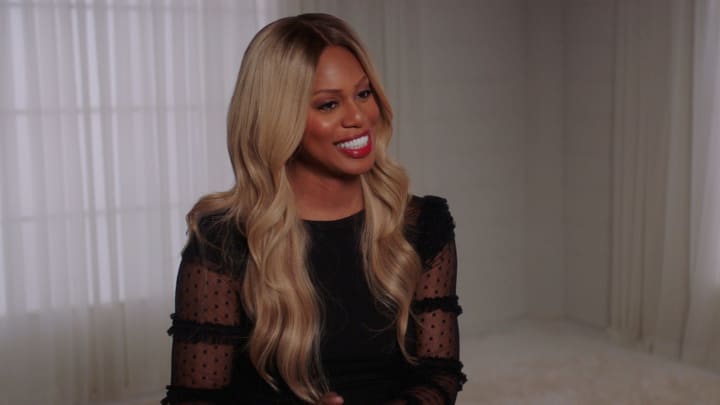
Laverne Cox, who is an amazing, amazing actress… Orange is the New Black… and amazing black transgender actress, about [how it is] very complex because on one level you have the power dynamics of men and women as cis-people where masculinity is very much the supreme, and if you give that up - if you quote on quote “give that up to become a woman” then you are kind of giving up your power. And so to see how transwomen are portrayed as almost having to be sort of deranged to want to give up that privilege… that’s just not what it is about.
But as they were talking about at the end of the movie, it is really changing for trans representation. You have Euphoria where they had a transgender actress [Hunter Schafer] as one of the lead roles-
Shania: Oh, I didn’t know that she was actually transgender. I had no idea.
Evita: No, yeah, she is.
Shania: And her character is transgender?
Evita: Yeah, her character is trans. But it’s still focused on her as a character, not just as a non-cis person.
Shania: I loved Euphoria, but I missed the first two episodes, so I didn’t even know that that character was transgender.
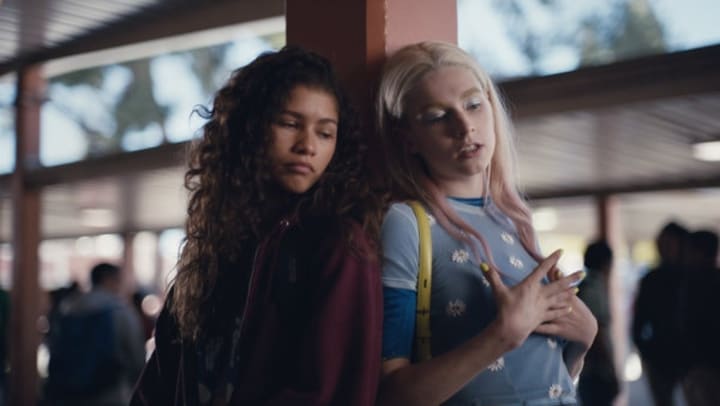
Evita: Yeah, and the actress as well. What they did for Euphoria - ‘cause a lot of people are like ‘oh well, we don’t know any trans actors so we can’t cast them ‘cause they just aren’t there’ but they are there. And what did to get her, Hunter Schafer, I’m pretty sure what they did was that they went into [online] trans communities and were like ‘hey we are looking for up and coming actors and actresses’ and that is how they got her.
You have to go into the communities and invite them. A lot of people from various communities aren’t invited into it and it is so exclusive, but what they did for Euphoria was saying ‘we have a trans character and we want a trans actress to play her’, and so they went into the communities and asked.
Shania: I think that is what is really important. I’ve spoken to a couple of friends that how when I make films I really want to make a point of representation. Yes, I am writing from a personal perspective and I am a white female, but the characters can be anything. I don’t think you should put limits on your characters whatsoever.
Do you think, this could be a bit of a controversial question, but do you think if it is a trans character, that they should get a trans person to play them?
Evita: If you do have a character who is a trans-man, it would be best to have transman play [the role]. I don’t think it should be a cis-woman playing [the role], because as they explained in Disclosure, at the end of the day that then sends the message that a trans-man isn’t really a man, but a woman playing dress-up. It’s a woman acting.
And they were talking about The Danish Girl with Eddie Redmayne, and he then accepts his award and he gets up on the stage and people then see ‘oh, this is a man. It’s not a woman’ and it just further perpetuates this idea that trans-men and women aren’t who they say they are, that they are just acting.
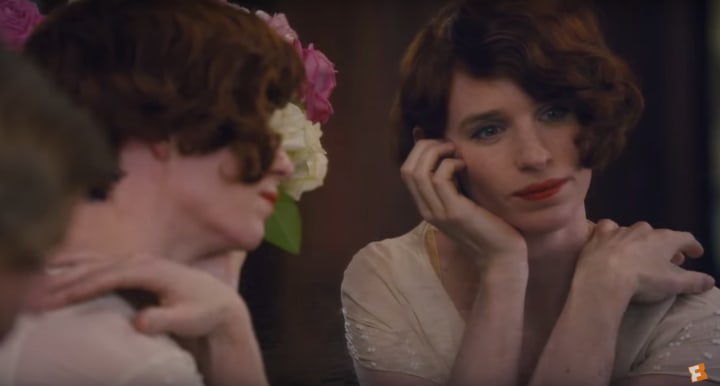
But then if a cis-woman played a trans-woman, then at the end of the day it is about a woman. At the end of the day, the audience still understands that it is a woman, not a man. I think Kerry Washington played a trans-woman, and I don’t remember who it was - yeah, Angelica Ross, I was watching and interview with her and she said that at the end of the day it was a story about a woman.
Obviously, I’m cis and my opinion isn’t really what matters here. It’s just that thing where trans actors are out there and they barely have any roles - well, barely hired for any roles - so to give a role about a trans person to someone who is not trans… it just takes away further opportunities. Trans actors are out there, so why should you not let them tell their stories? Of course, it is about acting, but there is a level of authenticity that’s got huge value in it as well. A cis person would never really be able to portray what it feels like to be trans. It’s just not going to be the same. Trans actors are out there, so hire them. Listen to them. If you do truly want to tell their story, collaborate with them. Don’t just take your interpretation, ‘cause there is probably a lot that you don’t know of.
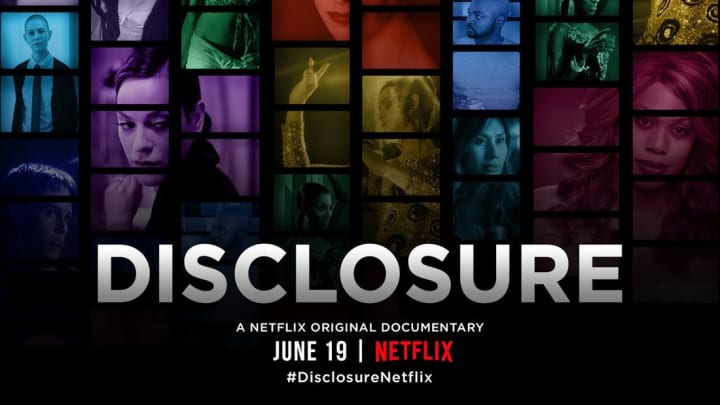
Evita: So to just bring it back to why we are doing this in the first place, I think it really comes down to inspiring each other and embracing each other. Embracing each other’s ideas and supporting each other… Because even if you are not a woman, the film industry is a harsh place to be. But especially when you are in a minority like that, a minority in the film industry that is, there is a lack of community. But we wanted to bring us all together.
Shania: I definitely think that for my career I want to highlight and focus on women’s work and I think this was the perfect start to do that. We are gonna use this opportunity to highlight our favourite women’s work and give women filmmakers and women in film a chance to share their opinions and thoughts, which I think is really important right now.
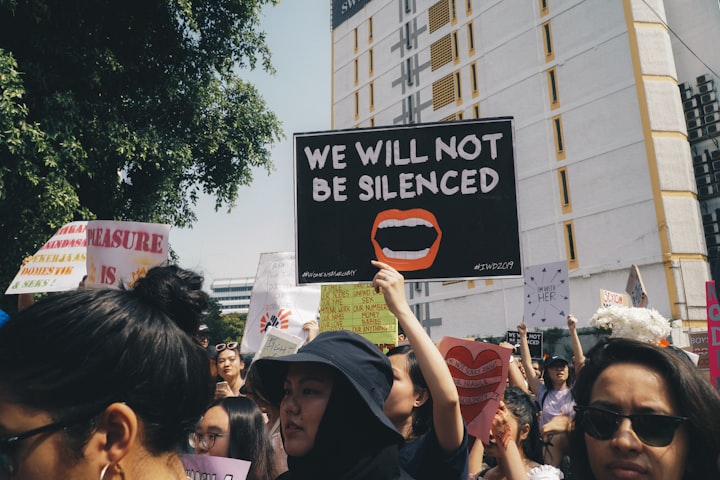
Evita: I completely agree. Giving a platform - not only to women who are already out there doing awesome stuff, of course, we do want to highlight that and bring awareness around them so that other women who are starting to look into starting a career in this industry can have examples and be empowered in that. But we do also want to empower those who are just starting out, who just shot their first short or just wrote their first thing and just got their first gig at some camera department. We want to share this experience of coming together and making incredible things!
Shania: For me, when I was 16/17 years old, I was obsessed with podcasts and I used to listen to them all the time, more so when I was younger. I would listen to film ones where they would talk about how to break into the industry because I would want to listen to other people’s experiences. So I think this could be really interesting for young people, to hear about other people’s journeys and experiences and get ideas based off of that - that’s what I did when I was younger. I want to do that for other young people who are in a similar situation to what I was in.
Evita: I totally agree; I listen to so many podcasts that are amazing and that I will probably be plugging throughout this podcast as well. But I did just realise that there wasn’t really a space for women in the industry - an educational space for us to just really support each other and embrace each other. And I want to have honest conversations about this too. We are going to be talking with women who are making it, that’s the point: Making It. We want to give that advice and guides; there are so many different ways of getting into this as well.

You can choose to go to film school - which our next episode will be about - but you can also choose to not do that, and maybe set up different freelance businesses, there are so many ways to get into this business nowadays. Like we were talking about earlier, it’s so accessible to make things, create stuff, to be a storyteller.
Shania: Definitely agree. In school, they give you one option and that is to go to uni, but that is so not the case. If you do your research, there are so many different routes you can take. Like Evita just said, this podcast will show you that there are a hundred and one different ways to get into the film industry, and none of them are right or wrong; everyone has their own path. That is what makes it exciting.
Evita: Exactly. And on Instagram, we want to do like ‘Women in Film Wednesdays’ and things where you can submit friends, or yourself, or icons and idols… All of that. We just want it to be a space where you feel empowered to do exactly what you are longing to do, and where you don’t feel neglected, you don’t feel demeaned, but where you feel like this is something that you can do - because you can. You can and you will. We want to be part of that.
Shania: I think what’s exciting about making this podcast is like you said about social media; we want to get everyone involved. I think it is exciting that we can create a community for female filmmakers online and using social media will be great to communicate with everyone. I know a couple of female filmmakers, but not as many as I want to and I think this will be a great way to connect and network with other filmmakers from all over the U.K.
Evita: Yeah, and that’s another thing where a lot of places that are about educating you on filmmaking - which is great, we want to study, we want to learn, we want to get that knowledge, but it can also be hard to kind of imagine yourself being in that [professional] position because it seems so far away. But we want you to see that it is all step by step and that every step matter; that it is not just about what’s on the top of the ladder. It is the entire journey. And it will be hard and it will be great and you will get there eventually.
We want this to be something you can see yourself in, not just for you in the future where you can see yourself right now. Whether that’s you just watching movies, loving movies, and talking about movies, or whether that’s you writing movies, photography, all these different aspects of it… We also don’t want it to be also only focused on one department of filmmaking either; we want to have intimacy co-ordinators on, we want to have different… camera folks on - we want it all. Audio, sound-mixing, music - music is such a huge part of filmmaking that is so overlooked, sound design in general, but it is such an important part of it and we want it to [be shown].
Shania: I think when you start out in the industry you [can often] put yourself in a box, and the only things you think about is being a film director, producer, actor - you don’t think of the hundreds of other jobs and roles that are required to make a film. Like Evita just said, music is a huge part of films. I didn’t realise that until a couple of months ago where I made a film and I rushed the editing and didn’t put any music. So I watch it back and was like…
Evita: Something is missing!
Shania: ‘Oh! Oh music is important!’ So yes - even when you go on set you see all these people running around and you realise it takes a TEAM to make a film. So I think Evita is right - we don’t want to put ourselves in a box, we want to show all the different roles you can have.
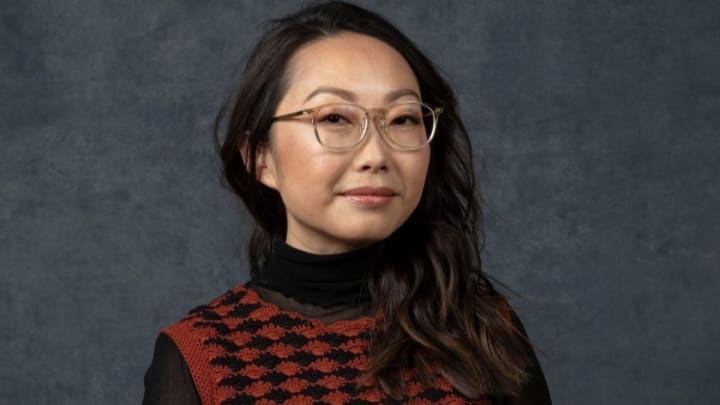
Evita: All the different possibilities, things and talents that make you unique. I remember listening to an interview with Lulu Wang and she was talking about how [one of] her first gigs was as a Chinese translator for a movie. She was looking around for sets who needed someone who could speak Mandarin, and so she called in and they were looking for just that. There are so many different approaches to getting into film, and different talents that you have and probably don’t even know you do. Different things that you might even have learned in lockdown, whether that’s just, I don’t know, becoming really good at coffeemaking! They will need that at some sets!
Shania: I think lockdown was the perfect time to start this podcast, for ages I’ve had so many ideas that I have wanted to work on, but I come from a really small town and people from there are very closeminded - I hope no one is listening - so I always had the fear of being judged or what others would think of me, but I think being in lockdown - and it is probably the same for a lot of you - has made me realise that that doesn’t matter. Everyone will always have an opinion of you. So if you have a vision for your life, you need to work on it. It’s your life and no one else’s.
Evita: Absolutely.
So to kick this off we wanted to talk about women who inspire us in all aspects of life. And as I was talking about earlier, for me it was storytelling. My mom is a writer, she didn’t start out that way and it wasn’t really an option that she knew that she had, but it was something that she knew that she always wanted to do. And so from a very young age, she encouraged me to write and write, and obviously those stories probably weren’t the best, but she saw something in me and she saw something in me and kept on pushing - not pushing, but she just let me know that this was something that I could do even though everyone around me couldn’t imagine being something like a writer or working on a film, being something bigger than what we are taught to be, I felt that I was able to.
And that is because of my mom. Because she allowed me to express myself through movies and because she allowed me to read… she wanted me to have a space where I could be completely myself. I think that has definitely just had such a huge, huge, impact on how I approach my writing now. She is self-published, and it is just so incredible to see how she just threw herself out there, which has inspired me to do the same. I’m not a film student, I’m throwing myself out there and taking a different approach; I’m not letting the statistics, or whatever you want to call it, stop me from that. I want to thank my mom, Eva Andrea, for that.
Shania: My biggest inspiration has been my sister L.J. I remember having a hard time at school, and she would take me to the cinema every single weekend, and that was my introduction into cinema. That is how I got interested in the film industry. I remember her coming home from college and teaching me what she had just learned. The first time I heard the word phrase ‘feminist’ was from L.J.
Everything right, I have learned from L.J., and I give her so much credit for the person that I am today. I wouldn’t have the thoughts or opinions that I do today without L.J. - she really formed me as a woman. She’d be really happy to hear this, so I hope you’re listening! I definitely give credit to her for basically being a second mom; not in raising me, but she taught me so much and has helped me through a really tough time in my life. So she is definitely my biggest inspiration.
This was the first episode of Making It: Women in Film. If you want more, go follow us on Instagram @MakingItWomeninFilm and on Twitter at @MakingItWIF - and don’t forget to subscribe to us wherever you get your podcasts.
You can follow Evita on Instagram @MalinEvita and on Twitter @evitacreates, and you can follow Shania on Instagram @ShaniaBethune and @ShaniaFilm.
Thank you for reading/listening!
About the Creator
malin evita
Creator of Making It: Women in Film







Comments
There are no comments for this story
Be the first to respond and start the conversation.